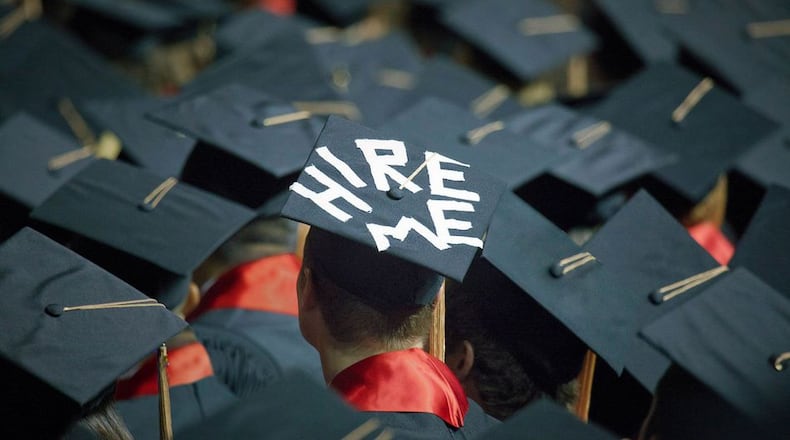As my four children navigated an assortment of undergraduate and graduate programs, I belonged to several online forums for parents. The most discussed topics have always been football tickets, Greek life, dorms and dining halls, study abroad, internships and jobs.
With the exception of universal laments about their children’s grades in organic chemistry — reviled as a barrier to medical school admission — few conversations touched on the academic mission of the campus.
A new book on higher education says that’s because colleges today have become shopping malls that provide a little something for everyone — climbing walls, art museums and lazy river pools — rather than well-stocked bookstores where students can explore who they are, examine their beliefs and think about ways they want to grow.
“You have to squint to see anything about the academic mission in any institution, anything that speaks about the intellectual life,” said researcher Wendy Fischman, co-author of “The Real World of College: What Higher Education Is and What It Can Be.”
Fischman authored the book with her longtime colleague at the Harvard Graduate School of Education, developmental psychologist Howard Gardner. Gardner developed the theory of multiple intelligences. It maintains that learning can occur through several types of intelligences, including an ability to visualize spatial patterns or think in musical patterns, rhythms and sounds.
The pair accuse colleges of mission sprawl and abandonment of their main purpose, which they describe as enabling students to analyze, reflect, connect and communicate on the critical questions they will encounter in their lives and in the world.
“You go on a college tour and you hear about 100 different things,” said Gardner at a recent Harvard seminar on his book. But what students hear too little about, he said, is how colleges develop the mind. “For 50 years or more, American colleges have been admired all over the world because the graduates can talk and think about many things. You just don’t know about engineering or being a pharmacist.”
If students don’t leave college better thinkers, writers and communicators, schools fail that core mission, according to the authors. They realize many parents and students believe the more important goal is leaving college with a well-paying job.
“Students and parents are not thinking long-term about education for a lifetime,” said Fischman in a telephone interview from Boston. “When we asked what happens if that job disappeared in a few years, students said they had never thought about that.”
Fischman, Gardner and their research team spent a decade on “The Real World of College,” conducting 2,000 interviews across 10 disparate campuses and analyzing the data.
In categorizing and coding words that students used across campus in the interviews, Gardner and Fischman expected those used most frequently would be “class,” “campus” and “friends.” They didn’t expect to hear as much about “parents,” “health” and “help.” When students used the word “help,” it was in the context of needing it themselves, not providing it to others.
The in-depth interviews with students revealed troubling commonalities. They included marked declines in mental well-being, a disconnect from academics, peers and the institutions themselves that grew over time, and widespread anxiety and stress. Faculty and administrators interviewed for the book also felt alienated and disconnected. “Our colleges are filled with constituencies that feel unsatisfied by the experience,” said Fischman.
Newspaper headlines to the contrary, college students weren’t worried about political correctness, free speech or even tuition costs. It was GPAs and job potential that kept them up at night. “The stress and anxiety is not about learning. It’s about earning,” said Fischman.
The authors offer multiple prescriptions to reframe higher education, beginning with a new laser focus on academics. They recognize there will be resistance, including from parents who want their children to enjoy the social dividends of a campus and believe the main payoff from a college degree is a job.
Gardner and Fischman counter that social opportunities can be found in many other settings, and students can hone job skills by going directly from high school into training programs. Their position: The return on investment from a college education should not be measured in job offers and salary but in the lifetime return of being able to think about and solve real-world problems.
“Getting a job is a benefit of a college education,” said Fischman. “It is not the purpose of it.”
About the Author
The Latest
Featured



